Our first and foremost advice to people travelling during a pandemic is to postpone it for as long as possible. No task or responsibility is worth putting yourself and your loved ones at risk.
People have self-quarantined, businesses and corporations have taken the work-from-home route, stores and restaurants are only offering home delivery or drive-thru, and the government has announced a semi lockdown – leaving your home isn’t a sound decision.
At the same time, some situations might make it mandatory for some people to travel internationally or domestically, be it via buses, trains, or aeroplanes. Some of us are coming home for summer breaks, some are returning from vacation, while some have urgent personal or work-related commitments.
Being Pakistan’s personal and most trusted source of information, we understand that some of our readers might be looking for ways to travel safely. So, we are attempting this blog in an effort to share some practical solutions to stay safe while travelling during a viral pandemic.
Again, the best decision is to postpone the trip, but if you must travel, then make double sure that you take the following precautions.
Tips for Travelling During a Viral Pandemic
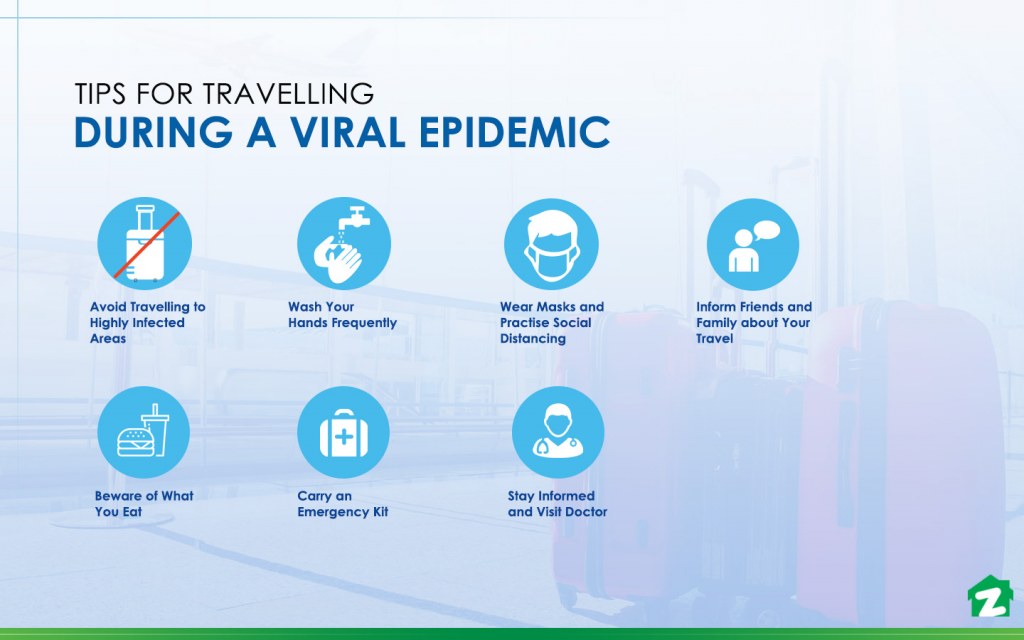
Considering the current situation, it can be really tough to understand exactly what measures should be taken for travelling during a viral pandemic, especially with the threat of getting infected by Coronavirus.
Travellers are most likely to come in contact with ticket counters, kiosks, escalator handrails, elevators, doors, and many other frequently touched objects.
So, is there a way to minimise the risk, if not completely avoid it? Well, there is.
Here are a few tips for travelling during a viral pandemic without putting yourself at risk:
- Avoid Travelling to Highly Infected Areas
- Wash Your Hands Frequently
- Wear a Mask and Practise Social Distancing
- Inform Friends and Family about Your Travel
- Beware of What You Eat
- Carry an Emergency Kit
- Stay Informed and Visit a Doctor
Avoid Travelling to Highly Infected Areas
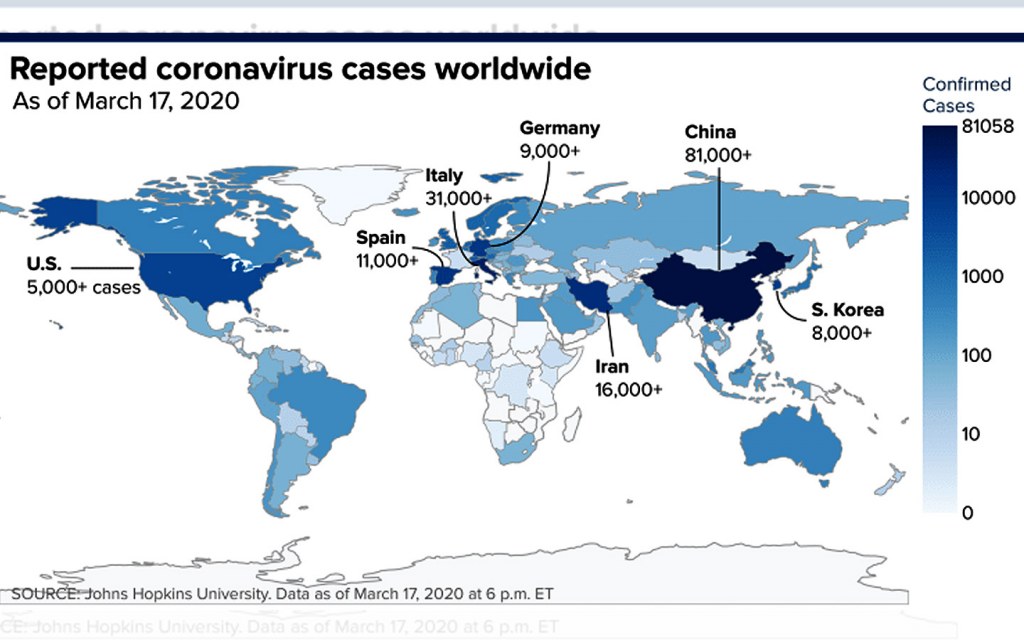
Image Credits: CNBC
A viral outbreak is nothing new to this world, and the list of epidemics can go on and on if we take a look back at the recent history. A great way to travel safely during a viral pandemic is to avoid going to high-risk areas.
The list of countries that have been affected by the current epidemic currently stands at around 180. Apart from Wuhan in China, the world’s major countries including the United States, Italy, Iran, the UK, France, Malaysia, Vietnam, Thailand, Japan, Taiwan, Hong Kong, Germany, France, Australia, Singapore, South Korea, Turkey, Macao, and Pakistan are some countries that have already reported several cases of people being infected. Make it a must to follow up on the list to keep yourself better prepared and protected.
Wash Your Hands Frequently
A few viruses, including Coronavirus, are transmitted only by touching contaminated objects or coming in physical contact with an infected person. Further, you can also get sick when viruses from those surfaces come in contact with your nose and mouth via your hands.
Preventative measures that travellers can take to remain uninfected from a viral epidemic include washing their hands frequently and avoiding touching any part of their face while they are outdoors. Also, keep all toiletries with you, including antibacterial soap, sanitiser, or liquid hand-wash while you are on your trip.
As per the travel advice by the World Health Organisation, “Clean hands protect against infection”. You can protect yourself by keeping the following guidelines in mind:
- Wash your hands every 2-3 hours.
- Use soap and water to wash your hands.
- Keep washing until you can sing “Happy Birthday” twice.
- Dry your hands thoroughly after washing.
- In case you do not have soap or hand-wash, you can use an alcohol-based hand rub.
Wear Masks and Practise Social Distancing
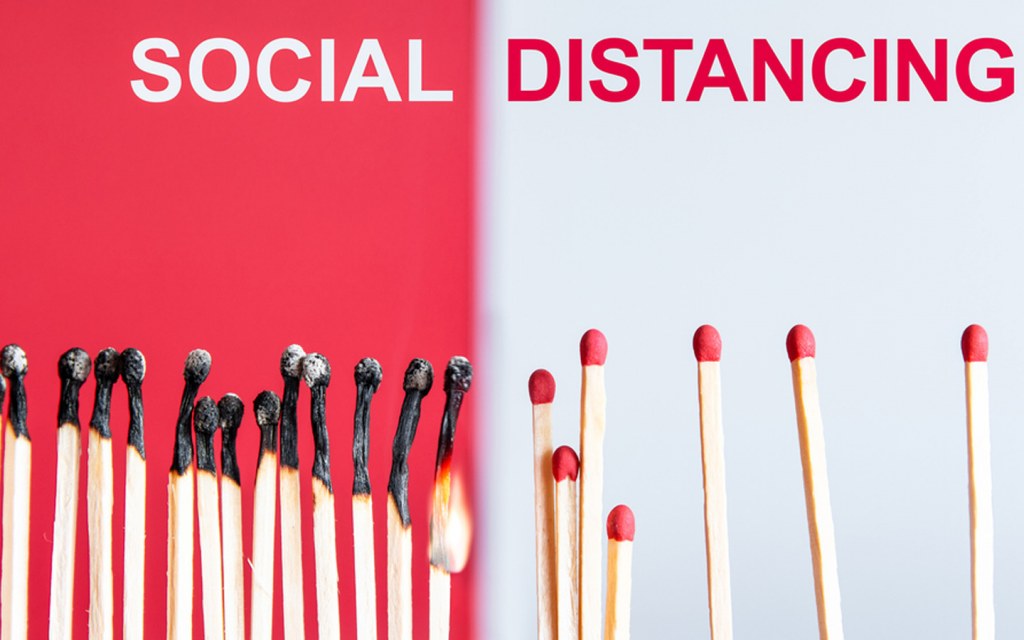
Wearing a mask can solve a lot of your problems, especially if you want to avoid getting sick during travelling. As mentioned earlier, viral diseases are usually transmitted from your hands to your face. If you are wearing a face mask, you would not have to worry about it.
Experts also say that wearing a face mask at public places is a “must-do” precaution while travelling. Also, getting yourself a pair of surgical gloves along with a mask is an incredibly good idea. The gloves will come handy when you’re shopping abroad and come in contact with a shopping cart, public transport, cash counters, cab’s door, and a lot of such objects. There’s a possibility that a sick person may have sneezed or touched these objects. Gloves and masks can lower the chances of catching a disease.
As per the travel advice by the World Health Organisation, wearing a protective mask and practising social distancing are two of the most important practices while travelling abroad during an epidemic. Meet as fewer people as you can, sit at a distance, and avoid physical contact of any kind.
Inform Friends and Family about Your Travel
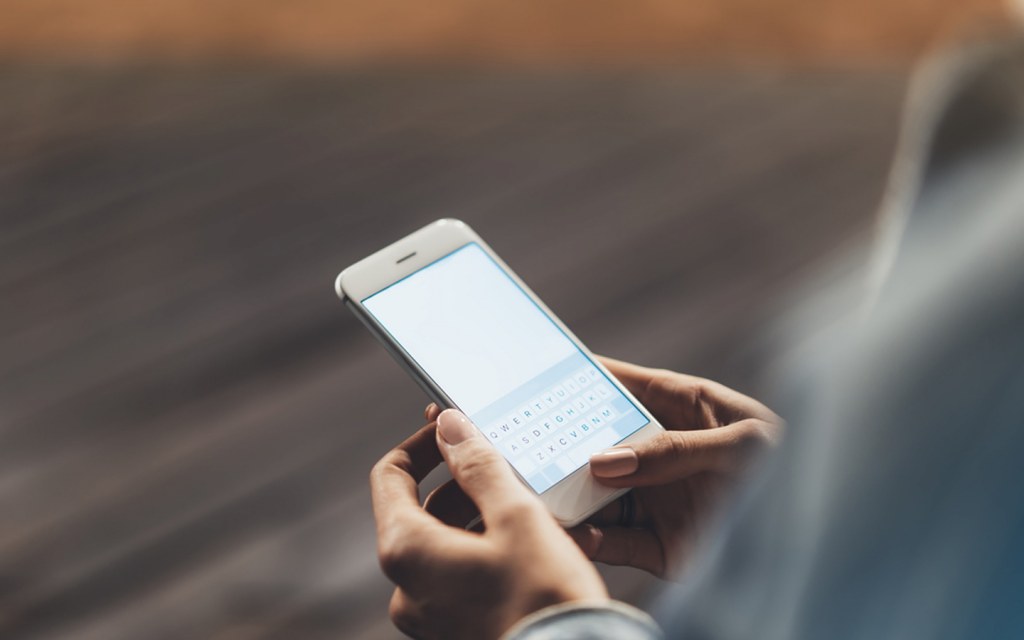
A text message or a call informing your friends or family about your current location is mandatory during an epidemic outbreak. You need to always think of the best and prepare for the worst.
This information can come handy if, god forbid, something happens to you, or there’s a lockdown in the city you’re travelling to – your family will know where to find you. Of course, nobody wants to end up in a medical ward with no contact or family information. In the worst-case scenario, hospitals are more likely to assume such cases as missing people.
Beware of What You Eat
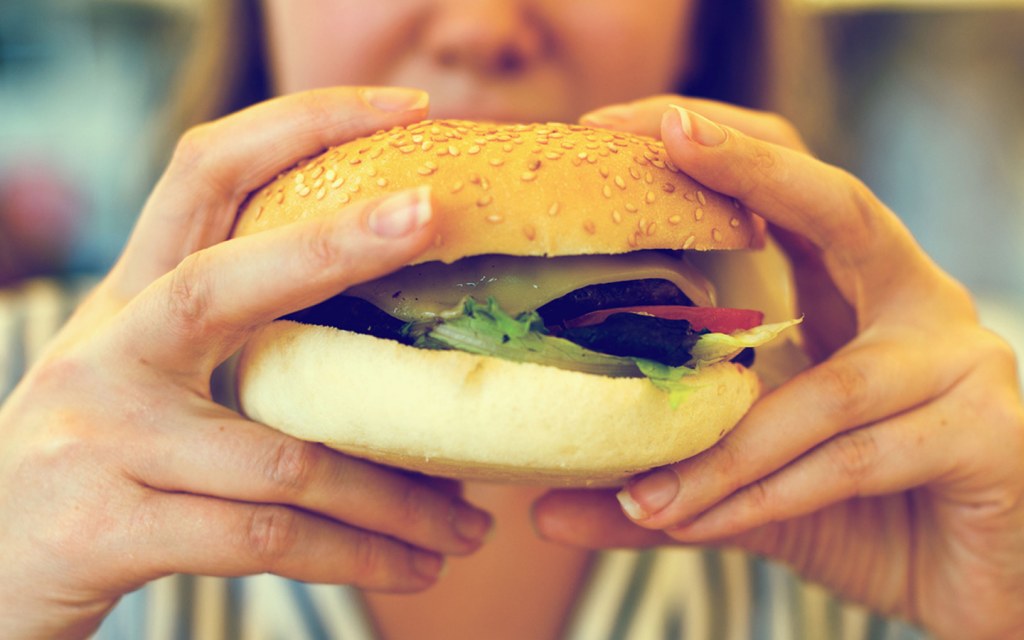
Eating at a place you are not certain about puts you at a greater risk while travelling. Not only can you get food poisoning from stale food, but you also have higher chances of getting infected with a viral epidemic since you will come in contact with tables, doors, crockery, and other objects at the restaurant. Not to mention, you are not sure whether the person handling, serving, and cooking your food is healthy.
A general rule of thumb while travelling during a viral outbreak such as Coronavirus is to visit local eateries online and check the ratings and reviews.
Further, viral diseases are extremely contagious, and they’re most likely to attack the person with a weak immune system. You can strengthen your immunity by eating and drinking healthy. Be careful of what you are consuming as food. It is no secret that the Coronavirus was initially transmitted by animals to humans, albeit its complete origin is still unknown. As a matter of fact, you don’t want to eat something that has a higher chance of being infected.
Carry an Emergency Kit
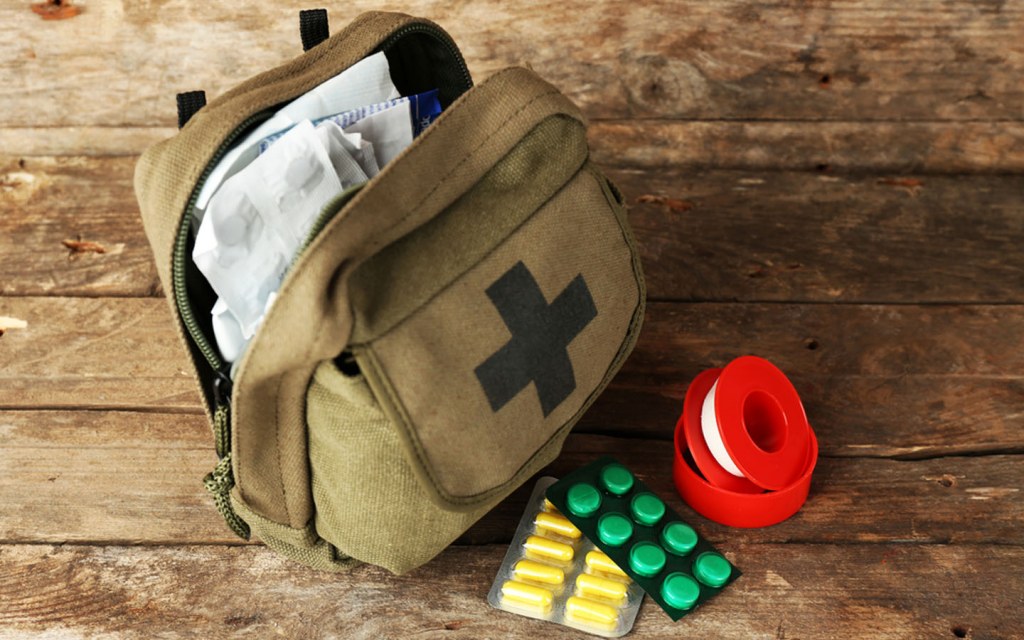
We would like to mention again that you should restrict travelling for good. However, if you must travel in these situations, you should carry an emergency kit with yourself.
The emergency kit should include all the necessities, including a hand sanitiser, hand-wipes, and painkillers. It is best to ask a local doctor for a prescription that might help prevent the disease from getting worse and ease the symptoms until you get some professional help.
Stay Informed and Visit a Doctor
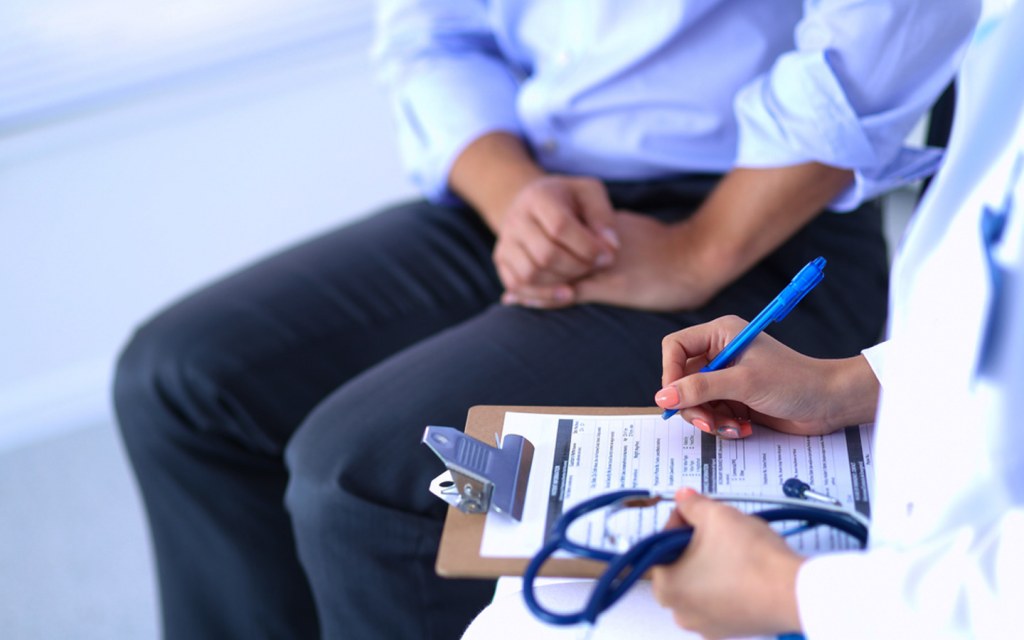
This one is self-explanatory. As soon as you land or reach your destination, you should immediately go to the nearest medical facility and get tested.
Some additional advantages of knowing the nearest medical facilities in a foreign land are:
- You would know how medical emergencies are taken care of in that country.
- You would be aware of the billing procedure.
Moreover, having prior knowledge of medical facilities can be a life-saving thing since emergencies require time-bound actions.
Besides, frequent medical check-ups are a must when you are travelling during a viral epidemic. Visit a doctor before and after your trip.
According to the travel advice by the World Health Organisation, several airports around the world have become extremely vigilant with screening after the rapid spread of the Coronavirus. Following the same strict policies, the staff at the international airports in Pakistan are coordinating with the government by providing a list of passengers who show any symptoms of the disease. The government has established isolation centres where passengers are required to spend at least 14 days after they land.
All things considered, if you’re still questioning yourself, “Should you change your travel plans because of Coronavirus?” Well, our answer is yes, you should. That’s the best decision you can make.
This brings us to the end of our post on some safety tips for travelling during a viral epidemic. If we have missed anything, please let us know at blog@zameen.com. Before we sign-off, we would like to remind you to take care of yourself and be kind to the people around you. Check up on your elderly neighbours during a lockdown and be available to help them. Remember, we can only get through this by sympathising with others and understanding the criticality of the situation. Spread awareness and share this piece with someone who you know is travelling.
For more tips on staying safe during the Coronavirus outbreak, keep visiting Zameen Blog.



